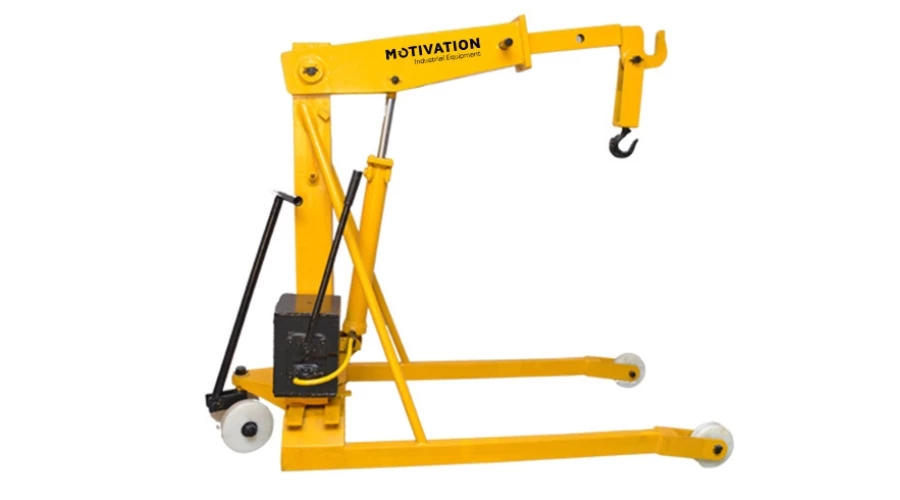
Cranes are material handling equipment that is used for lifting heavy loads. It easily replaces the need for human strength to lift the goods from one place to another in the warehouse because of its mechanism. They increase productivity, save time, and also ensure a safer work environment. In this blog, we will discuss why cranes are considered important machinery in material handling and why they are in high demand in warehouses and other manufacturing facilities.
Types of Cranes
They are available in various sizes and shapes as per various industry requirements. They have the capability of providing a personalized experience to their end user, as it can be customized as per specific material handling needs.
These cranes include:
1) Overhead Cranes:
These are fixed cranes that are ideal for carrying and transporting heavy loads within short distances, such as manufacturing plants or warehouses.
2) Gantry Cranes:
These cranes are mobile. which helps them to move along the track. They are mostly used in shipment areas, construction sites, and handling facilities such as warehouses, etc.
3) Jib Cranes:
They have a structure that allows them to cover a wide range of motion, which makes them suitable for material handling tasks in compact spaces and workshops.
4) Mobile Cranes:
They are exactly like their name, these cranes move on wheels and can go to different job sites. This makes them ideal for various projects that require flexibility and mobility.
Benefits of Using Cranes
Cranes offer many benefits that help increase productivity and efficiency:
1) Increased Load capacity:
Cranes have different types of lifting capacities, which allows them to handle various loads with ease. Manual lifting has its limitations. They help save time and effort by replacing manual labor.
2) Better Safety:
Cranes can reduce the risk of injuries in the workplace if the operator follows various safety protocols and has received proper training. Generally, these injuries occur in the workplace due to manual lifting.
3) Versatility:
Different cranes meet various material handling demands, which makes them versatile. This way, they become suitable for various industries.
4) Space optimization
Cranes, especially overhead and gantry cranes, use vertical spaces, which allows them to organize the workspace more efficiently. This also helps maximize the storage area.
5) Time and Cost efficiency:
The structural movements of cranes help reduce overall costs and shorten project timelines by performing material handling tasks more efficiently.
6) Reduced Risk of Material Damage:
Controlled lifting and movement of cranes, helps prevent the material from getting damaged. It also increases productivity.
When handling cranes, a strict obligation to follow all the safety measures is mandatory. It is advised that no accidents or injuries take place in the workplace, such as in a warehouse or any other manufacturing facility. There are certain guidelines regarding this:
1) Proper Training:
Operators with proper training or other certified operators must only handle cranes. If handled by people with a lack of proper training, it can cause serious accidents or injuries in the workplace, creating an unsafe workplace environment. Training programs include crane operation, load management, and safety protocols.
2) Pre-operational checks:
A thorough inspection must be conducted before handling cranes. It ensures that the machine is in proper condition to operate and handle loading and unloading processes. It reduces the risk of mechanical issues or potential threats in the machinery.
3) Limited Load Capacity:
A specified load capacity is prescribed to be followed by the crane operators. If they don't follow the limit, then the cranes may not function properly.
4) Load Stability:
Loading should be secure and stable while handling cranes. This would help prevent the accidents that occur due to shifting loads.
5) Communication:
Effective communication between operators and workers on the ground is essential for safe crane operation.
Conclusion
Cranes are important equipment in material handling. They help move heavy loads efficiently. They increase productivity and also ensure the safety of workers is maintained. With advancements in technology, cranes will change with time due to their dynamic nature. 13sqft understands the importance of cranes as material handling equipment. Due to their versatility, we have lots of cranes available to meet the industry's needs. They are of different sizes and colors, and one can choose as per their needs.
POSTED BY
Ishika Adhana
Digital Marketing Executive